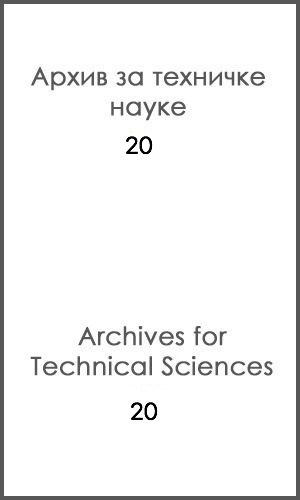SOIL AND RADIONUCLIDES OF EASTERN HERZEGOVINA
DOI:
https://doi.org/10.7251/afts.2019.1120.089TAbstract
Soil is one of the most important natural resources. Measurement of natural radioactivity in soil is very important to determine the amount of change of the natural background activity with time as a result of any radioactivity release.
Coal mine and thermal power plant in Gacko field is a very important industrial facility. The content of
radionuclides of the soil was examined at Gacko area, slag, ash and mullock dumps in thethermal
power plant Gacko and soils of dumps in the process of re-cultivation. The gamma – spectrometric
measurements were done in the Institute of Nuclear Sciences “Vinča” in Belgrade.Soil samples were
collected in 2010/2014 at more locations in eastern part of Republic of Srpska. After removing the
stones and vegetation, all soil samples for Gama spectrometric measurements dried up to
0
105 C, sieved, placed in the plastic 500 mL Marinelli beakers and left for four weeks to reach
radioactive equilibrium.
Given that there are no specific regulations in the Republic of Srpska, the concentration of natural and produced radionuclides in samples from the working and living environment of thermal power plants, comparison with literature data from the region and the world is one way of evaluating the impact of the plant's operation on the soils.
The results point to the necessity of regular monitoring of radioactivity in eastern Herzegovina in order to assess the impact of the technologically increased natural radioactivity.

